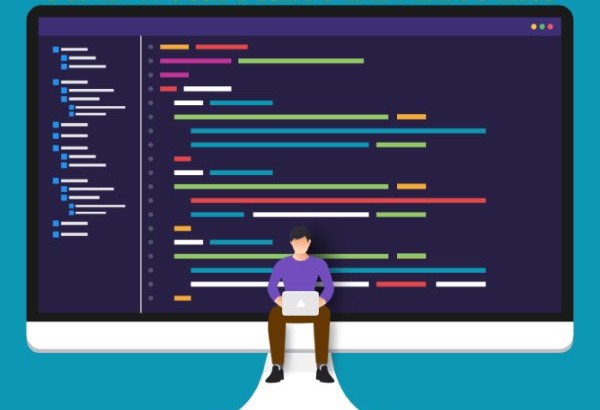
Great, you purchased a premium WordPress theme. Now what? Chances are that its close to what you need but not exactly. This is where you need a developer to customize the theme to meet your needs. This is both the power of WordPress and its detriment when compared to website builders.
Customizing a WordPress theme can significantly enhance your website’s appearance and functionality, aligning it with your brand’s unique identity. Whether you need minor tweaks or a complete overhaul, finding the right developer is crucial for turning your vision into reality.
Let’s review the required steps for finding a skilled developer who can tailor your WordPress theme to meet your specific needs.
Why Customize a WordPress Theme?
Before diving into the process of finding a developer, it’s essential to understand why you might want to customize a WordPress theme in the first place. Off-the-shelf themes offer a solid foundation, but they often lack the personalization needed to truly reflect your brand. Customizing a theme allows you to:
- Align with Your Brand: Modify colors, fonts, and layouts to match your brand identity.
- Improve User Experience: Tailor the design and functionality to improve navigation and user engagement.
- Enhance Performance: Optimize the theme to reduce load times and improve site speed.
- Add Unique Features: Incorporate custom features and functionalities that aren’t available in the default theme.
Steps to Find the Right WordPress Theme Developer
Finding the right developer involves more than just a quick search. Here’s a step-by-step guide to help you identify the best candidate for your project.
1. Define Your Project Scope
Before you start your search, clearly outline what you want to achieve with your theme customization. Consider the following:
- Specific Features: Do you need custom widgets, a unique homepage layout, or eCommerce integration?
- Design Preferences: Are there specific colors, fonts, or design elements you want to include?
- Budget: How much are you willing to invest in the customization?
Having a well-defined project scope will help you communicate your needs effectively and ensure that potential developers understand your vision.
2. Search for Qualified Developers
There are several places where you can find skilled WordPress developers:
- Freelance Platforms: Websites like Upwork, Fiverr, and Toptal offer a vast pool of freelancers with varying levels of experience.
- WordPress Community: The WordPress.org community, including forums and Slack channels, is a great place to find developers who are passionate about WordPress.
- Development Agencies: If your project is extensive, consider hiring a development agency like BeProSoftware.com that specializes in WordPress customization.
- Professional Networks: LinkedIn and other professional networks can help you connect with developers who have a proven track record.
Your mileage will vary with each. Not that WordPress developers tend to come from around the world. However the vast majority of jobs are in english. After all coding is generally done in english.
Most sites have ratings and reviews for freelancers. This can provide a strong indicator for what to expect with the provider. Number of jobs completed is another great indicator. When these characteristics are not available, you will have to judge each provider on their merit
3. Evaluate Their Portfolio
Once you’ve identified potential developers, review their portfolios to assess their experience and expertise. Look for:
- Relevant Experience: Ensure they have experience with WordPress and have worked on projects similar to yours.
- Design Quality: Evaluate the aesthetics of their previous work. Does their style align with your vision?
- Functionality: Check if their past projects include the type of customizations you’re looking for.
4. Check Reviews and References
Client feedback is invaluable when selecting a developer. Look for reviews on their profiles or request references from previous clients. Positive reviews and testimonials can give you confidence in their ability to deliver quality work.
5. Conduct an Interview
An interview allows you to gauge the developer’s communication skills, technical knowledge, and understanding of your project. Consider asking:
- How do you approach theme customization?
- What challenges have you faced in past projects, and how did you overcome them?
- Can you provide a timeline and cost estimate for this project?
This conversation will help you determine if the developer is a good fit for your project.
6. Agree on Terms and Start the Project
Once you’ve selected a developer, it’s essential to formalize the agreement. Ensure that both parties are clear on the following:
- Project Timeline: Set realistic deadlines for different stages of the project.
- Payment Terms: Agree on the payment structure, whether it’s hourly or a fixed price.
- Communication Plan: Establish how often you’ll check in and through what channels.
Here is A Major Tip
When posting on job boards, be sure to leave a hidden message in the post to confirm the readers speak english and have actually read your entire post. Simple put in your job posting, “Start your reply with X”, where “X” is any keyword you choose. If the user replies without your keyword at the top, ignore the freelancer.No matter how much they say that they read your job posting and quote the title of your job posting, ignore that provider.
Many of these sites offer API’s to providers and they are simply auto replying to your post based on factors like title. The hidden keyword has been the gem for us in terms of filtering out freelancers who are not focused on our project
Tips for a Successful Theme Customization Project
When managing a website customization project, there are a few items to consider.
- Provide Detailed Feedback: Regularly review the developer’s progress and provide specific feedback to ensure your vision is accurately realized.
- Stay Involved: Even if you’re not technically inclined, staying involved in the project will help ensure that the final product meets your expectations.
- Be Open to Suggestions: While you have a clear vision, be open to your developer’s ideas. They might suggest improvements you hadn’t considered.
Conclusion
Customizing a WordPress theme is a powerful way to make your website stand out. By carefully selecting the right developer and maintaining clear communication throughout the project, you can create a website that truly reflects your brand and meets your business goals.
Ready to start your project? Begin your search for a skilled WordPress developer today and watch your website transform!


